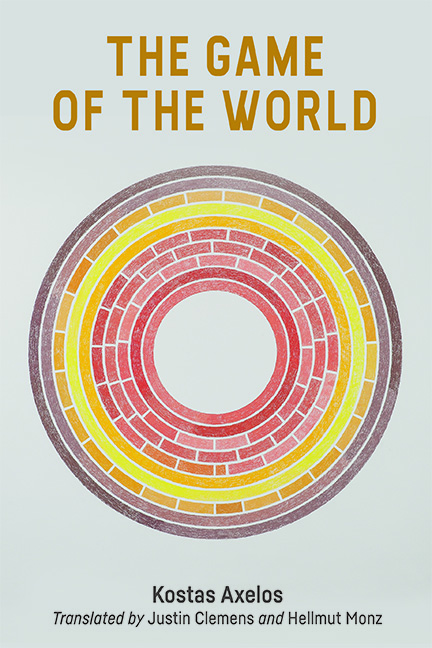Book contents
- Frontmatter
- Contents
- Translators’ Introduction
- Prelude
- Opening. The Great Powers and the Elementary Forces of the World
- I Logos. The Language and Thought of Man and the World
- II That. The Play of the Being in Becoming of the Fragmentary and Fragmented Totality of the Multidimensional and Open World
- III God-Problem
- IV Physis. The Cosmic World
- V The Human in the World
- VI World History
- VII The World of Poetry and Art
- VIII Being-Nothingness, Everything-Nothing, the Unworldly World
- IX The Game of the World
- Notes
- Analytical Table
III - God-Problem
Published online by Cambridge University Press: 17 November 2023
- Frontmatter
- Contents
- Translators’ Introduction
- Prelude
- Opening. The Great Powers and the Elementary Forces of the World
- I Logos. The Language and Thought of Man and the World
- II That. The Play of the Being in Becoming of the Fragmentary and Fragmented Totality of the Multidimensional and Open World
- III God-Problem
- IV Physis. The Cosmic World
- V The Human in the World
- VI World History
- VII The World of Poetry and Art
- VIII Being-Nothingness, Everything-Nothing, the Unworldly World
- IX The Game of the World
- Notes
- Analytical Table
Summary
How could a meditation articulate itself with a loud or a quiet voice, a thinking or praying voice, an accepting or challenging voice, an extremely fragile and hardly convincing meditation on the God-problem? Speaking on already denotes a certain relationship of externality, which, far from facilitating our access to the problematic, makes it even more difficult for us, especially if one does not fall for one of the convenient solutions – in fact, dissolutions of the problem – that are named theism and deism, pantheism and atheism. Is it about God? Which? That of ‘always’, that of Abraham, Isaac and Jacob, that of prayer, that of ontotheology, that of the Church, that of the philosophers, the living God or the dead, hidden or unknown God revealed or grasped by reason or the heart? Is it the same God who manifests and withdraws, imposes and denies himself, animates tradition and disappears? His different aspects and different approaches rely on him and each on the other, betraying themselves mutually, each contradicting itself and all ‘betraying’ God. How to find an orientation, not towards the problem of God, but towards the God-problem, a problem that proposes itself and that distances itself problematically?
In the beginning, the gods and God existed without being comprehended. God was first comprehended as the beginning of the world, the prince and principle governing all that is, the arche of the pan, the sacred, the honest and the salutary, the holon, the Heil, without being founded on anything, not even on itself. Then he was comprehended as the creator of the world, the producer and the cause of all that is, himself being self-created, self-produced, as causa sui, ens a se. Finally, he was comprehended as a creature, a production of the representation of the human – what the human was not, but desired to be – of the human who self-produces itself and wants to grasp through their thought and their science the true and the plausible, the causal and probabilistic laws both in nature, which pre-exists them, as well as in their own history. It remains for us to begin to think, neither departing from the God-human split, nor departing from the humanitas alone of the human.
- Type
- Chapter
- Information
- The Game of the World , pp. 229 - 248Publisher: Edinburgh University PressPrint publication year: 2023

